Introduction
Do Parakeets Need To Be Covered At Night: Parakeets, those colorful and charismatic members of the parrot family, have long been cherished as delightful companions in many households around the world. These small, lively birds with their vibrant plumage and charming personalities can bring joy and companionship to their owners. However, along with the joy of having a pet parakeet outside comes the responsibility of them with proper care and a comfortable living environment. One question that often arises among parakeet owners is whether or not these avian companions need to be covered at night. Covering parakeets at night is a topic that has generated some debate among bird enthusiasts and experts.
Like all living creatures, parakeets have their own unique needs and preferences, and their care should be tailored to ensure their well-being. To understand whether or not parakeets need to be covered at night, it’s essential to delve into their natural behaviors, their sleep patterns, and the factors that influence their comfort. In their natural habitat, parakeets are native to regions like Australia and South America, where they are exposed to a variety of environmental conditions. In these regions, parakeets typically roost in trees and bushes at night, finding shelter from the elements and potential predators.
This behavior has led some to believe that providing a cover for pet parakeets mimics their natural instincts, helping them feel more secure in their captive environment. However, it’s crucial to recognize that pet parakeets have adapted to life with their human companions, and their needs may differ from those of their wild counterparts. Therefore, whether or not to cover your parakeet at night should be based on a combination of factors, including your bird’s individual preferences, the environment in which they live, and their sleep patterns. In whether parakeets need to be covered at night, we will delve into the reasons some owners choose to cover their birds, the potential benefits, and drawbacks of this practice.
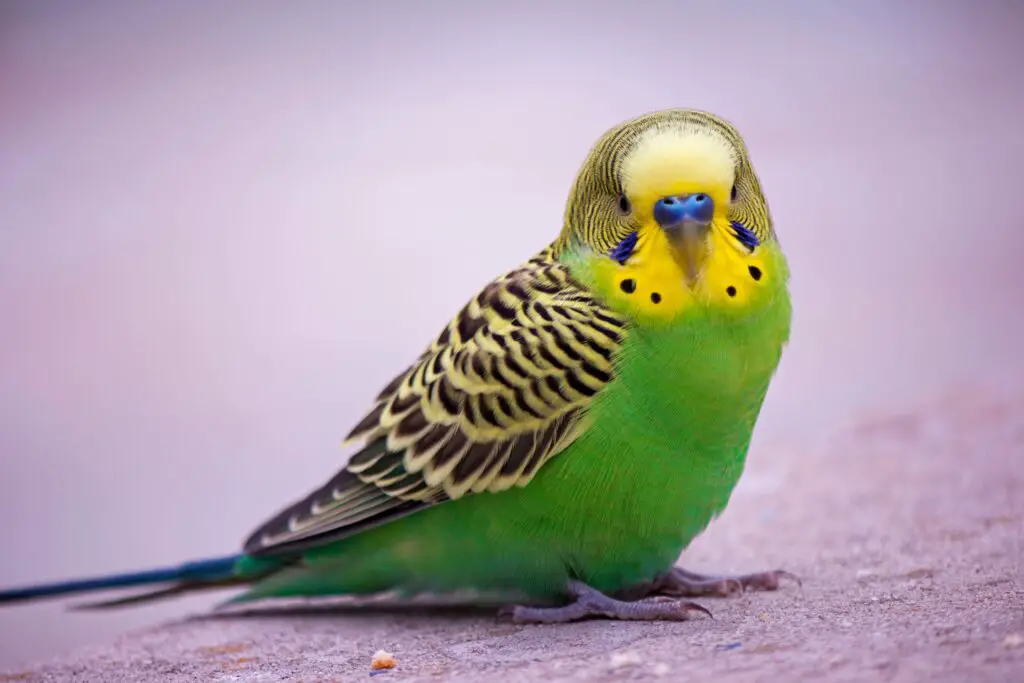
Are you supposed to cover a parakeet at night?
A benefit of covering your bird’s cage at night is that it provides a regular period of privacy not usually allowed during the day. Further, it tends to keep the bird quiet in the early morning when it would otherwise become active and vocal. lf you now cover your bird’s cage at night, continue to do so.
Covering your parakeet’s cage at night can several benefits. Firstly, it creates a sense of security, as it mimics the dark and sheltered conditions parakeets seek in the wild. This can help your bird feel safe and comfortable, promoting better sleep. Secondly, it helps regulate temperature and reduce drafts, which is crucial for your parakeet’s health and well-being. Finally, covering the cage can minimize disturbances from household noise and activity, allowing your bird to enjoy uninterrupted rest.
While covering can be beneficial, it’s recognize that not all parakeets have the same preferences. Parakeets, like humans, have individual personalities. Some may readily accept being covered, while others may feel stressed or confined under a cover. Therefore, it’s crucial to observe your bird’s behavior and adapt your care routines accordingly.
If your parakeet does not seem comfortable with being covered at night, there are alternative strategies to ensure they get a good night’s sleep. One effective approach is to place their cage in a quiet, dimly lit room away from disturbances. Maintaining a consistent sleep schedule is also essential, as it helps regulate your bird’s internal clock and promotes healthy sleep patterns.
What time should I cover my parakeets cage at night?
It depends on the situation. Some birds prefer to remain uncovered during bedtime, and other birds simply cannot sleep without a “security blanket.” On average, birds need about 12 hours of good, quality sleep each night to remain in peak condition.
One of the most critical factors in covering your parakeet’s cage at night is consistency. Parakeets thrive on routine, so establishing a consistent bedtime and wake-up time for your bird is essential. This routine helps regulate their internal clock and ensures they receive the right amount of sleep for their overall health and well-being.
The exact time to cover your parakeet’s cage can vary depending on your household’s daily schedule and your bird’s preferences. Generally, parakeets should be covered shortly after sunset. This timing aligns with their natural instincts to seek shelter as night falls. You can determine the specific time by observing when your parakeet starts to wind down and become less active in the evening.
Every parakeet is unique, so it’s essential to consider your bird’s individual needs and preferences. Some parakeets may prefer an earlier bedtime, while others may be more comfortable with a later one. Pay attention to your parakeet’s behavior and adjust their bedtime accordingly to ensure they get adequate rest.
Is it okay to cover birds at night?
Beyond the fact that wrapping your braids at night can help maintain their freshness, you will be protecting the fragile hair around your hairline and edges; maintaining moisture to your scalp and roots; preventing hair breakage and having fresh edges by the morning.
Mimicking Natural Conditions: Covering a bird’s cage at night can replicate the dark and quiet conditions that many birds seek in their natural habitat. This can help birds feel safe and secure during their rest.
Reducing Stress: A cover can also minimize disturbances from household activities or external noises, which can stress out a bird and disrupt their sleep. Establishing a regular sleep routine can be crucial for a bird’s health. Covering the cage at a specific time can signal to the bird that it’s time to rest, helping regulate their sleep patterns.
Individual Preferences: Not all birds are the same. Some may feel more comfortable with a cover, while others might become stressed or agitated. Pay attention to your bird’s behavior to determine their preferences.
Species Differences: Different bird species may have varying sleep requirements. Some nocturnal birds, like owls, may prefer darkness during the day, while diurnal birds, like parrots, may prefer darkness at night. Ensure that the cover you use allows for proper ventilation to prevent the accumulation of moisture and mold inside the cage.
Is it OK to put a blanket over a bird cage?
Smaller birds aren’t a problem with covers, but the larger birds tend to see it as another thing they can destroy. If you must cover the cage, make sure it is with a material that can’t be unraveled and won’t produce threads or strings.
Mimicking Natural Conditions: In the wild, birds roost in dark or low-light areas during the night to rest and sleep. Covering the cage at night can help replicate these natural conditions, making the bird feel safe and secure.
Reducing Stress: A blanket or cover can block out external disturbances, such as household noises or sudden movements, which can otherwise disrupt a bird’s sleep and cause stress.
Establishing a Sleep Routine: Covering the cage at a specific time each night can signal to the bird that it’s time to rest. This routine can help regulate their sleep patterns and contribute to their overall well-being.
Individual Preferences: Not all birds have the same preferences. Some birds may readily accept being covered, while others may become stressed or agitated. It’s observe your bird’s behavior and adjust their sleeping arrangements accordingly.
What can I do with my parakeet at night?
Using a cage cover at night mimics that nest cavity. It also shelters the bird from any ambient light that is in your home as well as allowing your bird to sleep without any drafts caused by air conditioning or an air purifier that you might have running.
One of the most crucial things you can do for your parakeet at night is to a quiet and peaceful environment. Parakeets, like many birds, are diurnal, meaning they are active during the day and require restful sleep at night. Ensure that the room where your parakeet’s cage is located is free from loud noises, disturbances, and bright lights during their sleep hours.
Establishing a regular sleep schedule is vital for your parakeet’s well-being. Try to maintain a consistent bedtime and wake-up time for your bird. This helps regulate their internal clock, ensuring they get the right amount of sleep each night. Most parakeets need approximately 10-12 hours of sleep per night.
While you should a quiet environment, it’s also beneficial to darken the area around your parakeet’s cage. Covering the cage with a breathable, bird-safe cover or placing the cage in a dimly lit room can help create the darkness that mimics their natural sleeping conditions in the wild.
How much darkness do parakeets need?
Need for Darkness
Most species of companion parrots originate from tropical areas. There, they usually experience 12 hours of daylight and 12 hours of darkness. As a pet, parrots require more sleep than we do, and most continue to need at least 10 hours of sleep time every night.
Regular Sleep Schedule: Parakeets, like humans, benefit from a regular sleep schedule. Aim to your bird with 10-12 hours of sleep per night. This consistent sleep pattern helps maintain their overall health and well-being.
Natural Light Exposure: Parakeets thrive when exposed to natural light during the day. Sunlight essential vitamin D, which is necessary for the absorption of calcium and maintaining strong bones. If possible, place your parakeet’s cage near a window, but ensure that direct sunlight doesn’t overheat the cage.
Dimming the Lights at Night: To ensure your parakeet gets adequate darkness during their resting hours, consider dimming the lights in the room where their cage is located. You can use curtains or shades to create a darker environment as the evening approaches.
Avoid Artificial Light at Night: Artificial lighting, especially bright and disruptive light sources, should be avoided in the room where your parakeet sleeps. This can disturb their sleep patterns and disrupt their circadian rhythm.
What happens if you forget to cover a bird cage at night?
If there is enough darkness without a cage cover, then a cage cover is not necessary. Birds do not do well with sudden changes to their routine, though. If leaving the cage cover off will cause a change in the number of hours of darkness each day, try to ease the change in gradually.
One of the primary reasons for covering a bird’s cage at night is to them with uninterrupted sleep. Birds, including parakeets and other species, require a restful night’s sleep for their physical and mental well-being. If you forget to cover the cage, your bird may be exposed to disturbances, such as household noises, bright lights, or sudden movements, which can disrupt their sleep patterns. Over time, this can lead to sleep deprivation, stress, and health issues.
Birds are sensitive creatures, and sudden changes in their environment or routine can cause stress and anxiety. If your bird is used to being covered at night and suddenly isn’t, they may become anxious and agitated. This can affect their overall demeanor and behavior, potentially leading to behavioral problems.
Birds, like humans, thrive on routine. Establishing a consistent sleep schedule is crucial for their well-being. Forgetting to cover the cage at night can disrupt this routine and lead to irregular sleep patterns. This can affect your bird’s physical health, as their bodies rely on a regulated sleep cycle.
Can birds sleep with lights off?
When the researchers looked into the consequences of sleeping under light, they found no effect of nightly illumination on the birds’ memory and learning, and their blood levels did not show any indication of sleep disruption. However, both light sources caused the birds to be more active at night.
Dark Environment: Most pet birds, including parrots and parakeets, sleep better in a dark or dimly lit room. Covering their cage with a breathable, bird-safe cover can help create the darkness they need.
Maintain a Consistent Sleep Schedule: Establish a regular sleep schedule for your pet bird to mimic their natural circadian rhythm. Most pet birds need approximately 10-12 hours of uninterrupted sleep at night.
Avoid Sudden Light Exposure: Avoid exposing your bird to sudden, bright lights during their sleep hours. If you need to check on your bird or lighting in the morning, do so gradually to minimize disruption.
Maintenance of Circadian Rhythm: Exposure to natural light during the day and darkness at night helps regulate a bird’s circadian rhythm, which is essential for their overall health and well-being. Disrupting this rhythm by exposing birds to light at night can lead to health issues.
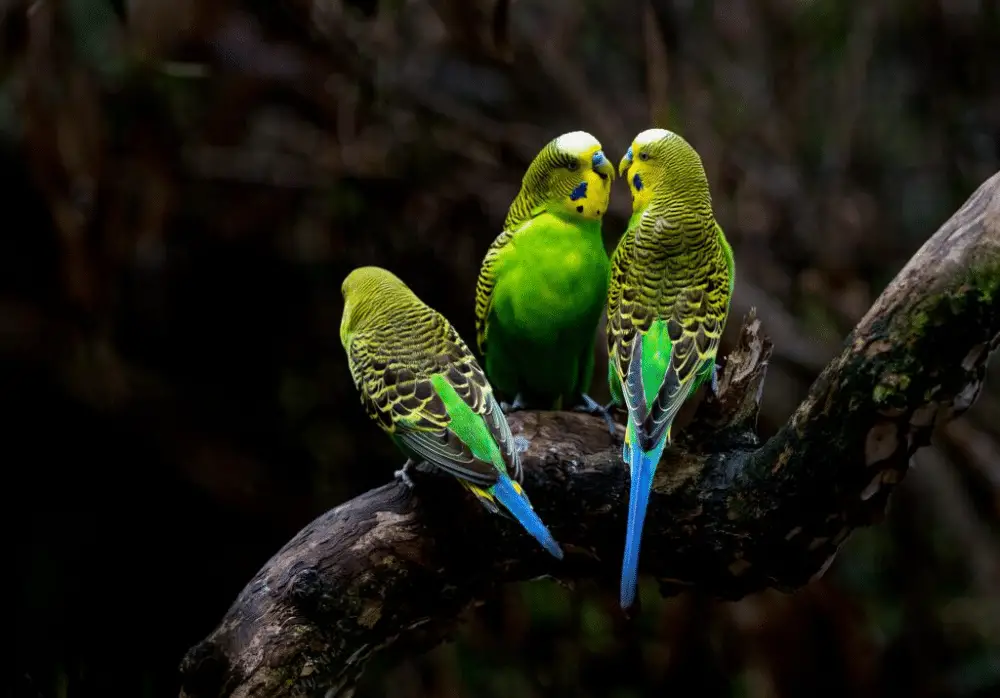
Conclusion
Parakeets need to be covered at night is not a one-size-fits-all answer but rather a nuanced consideration of various factors. While some parakeet owners choose to cover their birds during the night, there are no strict rules that mandate this practice. Instead, it should be based on an understanding of your individual parakeet’s needs, their environment, and their behavior. Covering your parakeets sleep night can offer certain parakeets benefits. It may create a sense of security for your bird, mimicking their natural roosting behavior in the wild and giving them a dark, quiet environment for rest. A cover can help regulate temperature fluctuations and reduce drafts, which are for maintaining your parakeet’s comfort.
However, not all parakeets appreciate being covered, and some may even feel stressed or confined under a cover. It’s essential to observe your bird’s behavior and preferences to determine if covering is suitable for them. Some parakeets may thrive without being covered, as long as their cage is placed in a quiet, dimly lit room away from disturbances. Ultimately, the goal should be to create a conducive sleep environment for your parakeet. This means they have a consistent sleep schedule, ensuring their cage is located in a peaceful area, and minimizing disruptions during their sleep hours.
If your parakeet appears to be comfortable and well-rested without a cover, then there may be no need to introduce one into their routine. That each parakeet is unique, and what works for one bird may not work for another. The key is to pay close attention to your parakeet’s behavior and adjust their sleeping arrangements accordingly to ensure they are healthy, happy, and well-rested. Whether or not you choose to cover your parakeet at night should be a decision made with their best interests in mind. By a comfortable and secure sleeping environment tailored to your parakeet’s individual needs, you can ensure that they enjoy a restful night’s sleep and thrive in their home with you as their caring companion.

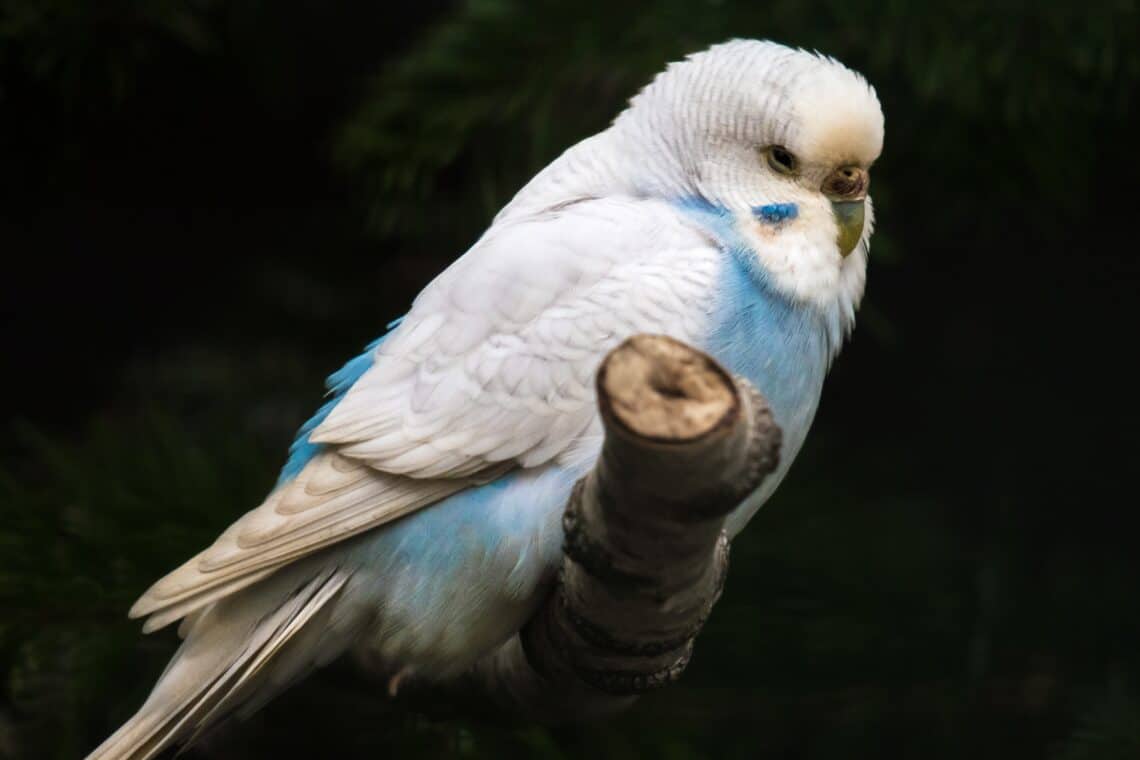
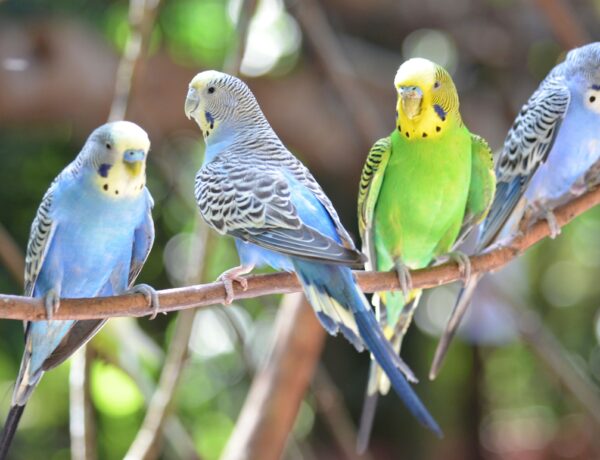
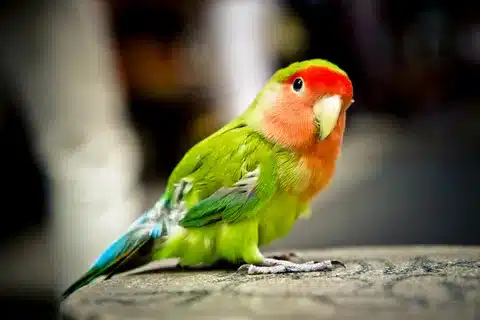
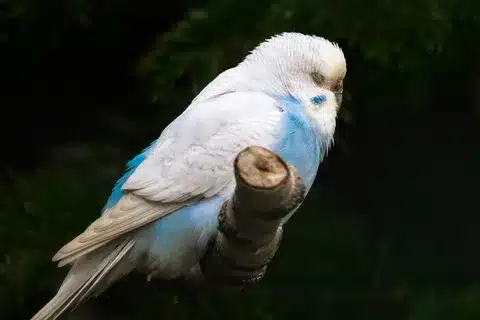
No Comments